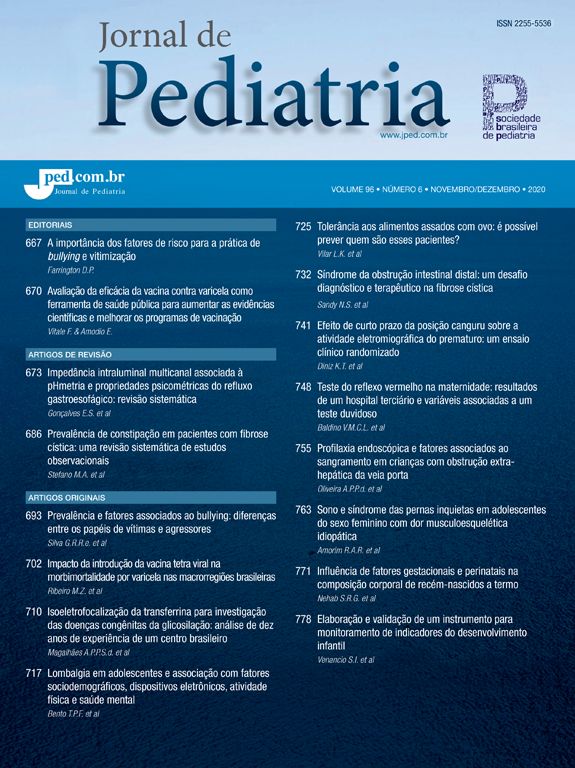Despite the high prevalence of chronic otitis media with effusion (OME) in children, the real effectiveness of most treatments in use nowadays has not been completely established. Based on the natural course of this disease, we support expectant management as the initial treatment strategy.
MethodsWe carried out a review of the literature taking into consideration the natural history, epidemiology, and therapeutic options for OME with the aim of identifying a consensus concerning the best treatment for OME in children.
ResultsThe treatment of OME remains controversial, despite the several alternatives. In children, the best option still seems to be observation for three to six months. However, interventional treatment should be started earlier in high risk patients with tympanic/ossicular alterations or impaired development resulting from hearing loss secondary to OME.
ConclusionsThe several factors involved in the pathogenesis of OME, as well as the characteristics of the evolution of this disease support the strategy of expectant management until clinical or surgical intervention can no longer be postponed.
Apesar de a otite média crônica secretora (OMCS) ser uma entidade prevalente em crianças, a real validade dos tratamentos em uso não está bem estabelecida. Baseados no curso natural da OMCS, avalizamos uma conduta expectante no seu tratamento inicial.
MétodosFoi realizada uma revisão da literatura, abrangendo o diagnóstico, a história natural, a epidemiologia e as opções terapêuticas da OMCS, em busca de um consenso sobre o tratamento mais adeqüado da OMCS em crianças.
ResultadosO tratamento da OMCS ainda permanece controverso apesar de existir uma série de opções terapêuticas. Em crianças a melhor conduta inicial parece ser a observação do quadro por um período de três a seis meses. Todavia condutas intervencionistas devem ser antecipadas naqueles considerados pacientes de alto risco com alterações tímpano-ossiculares ou nos quais se estabeleceu um comprometimento no seu desenvolvimento, motivado pela hipoacusia decorrente da OMCS.
ConclusõesA compreensão dos diversos fatores envolvidos na gênese da OMCS, bem como de particularidades sobre o seu curso evolutivo, fortalecem a idéia de uma conduta expectante, conservadora em um primeiro momento, ou até que se estabeleça uma justificativa convincente para uma intervenção clínica ou cirúrgica.








